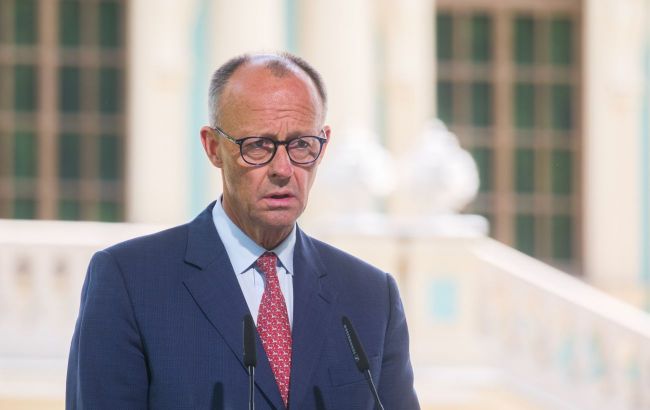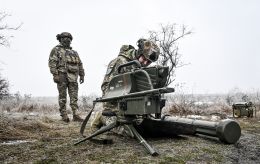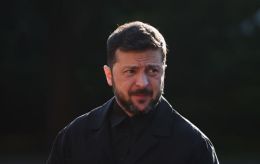Putin cannot be allowed to exit Ukraine war successfully, German Chancellor says
 Photo: German Chancellor Friedrich Merz (Vitalii Nosach, RBC-Ukraine)
Photo: German Chancellor Friedrich Merz (Vitalii Nosach, RBC-Ukraine)
Russia's Vladimir Putin should not end the war in Ukraine on his own terms. Any peace agreement will be worthless without the consent of Europe and Ukraine to its terms, according to German Chancellor Friedrich Merz.
Merz notes that Putin must understand and acknowledge that he has no other option for ending the war in Ukraine except through a peace agreement. In addition to Ukraine, the agreement must also be approved by European states.
"We want this war to end as quickly as possible. But an agreement negotiated between great powers without the consent of Ukraine and without the consent of the Europeans will not be the basis for a genuine, sustainable peace in Ukraine," he says.
Merz adds that decisions regarding Ukraine and Europe can only be made with their consent. Other options are unacceptable. Germany, he says, will continue to support the Ukrainian people and will use frozen Russian assets for this purpose.
"Decisions about European matters can only be made by mutual consent. Ukraine is not a pawn, but a sovereign actor for its own interests and values," the Chancellor concludes.
European Commission President Ursula von der Leyen believes that Russia is currently showing no willingness to end the war in Ukraine and agree to a peace deal. Therefore, pressure on Russia must continue until the Kremlin is forced to make peace.
Interestingly, Dmitry Peskov, press secretary to Vladimir Putin, made a similar statement. Against the backdrop of the scandal surrounding the revealing of recordings of conversations between US Special Representative Steve Witkoff and Putin's aide Yuri Ushakov, Peskov called for no premature conclusions to be drawn about a quick end to the war.
Not long ago, information emerged about a so-called peace plan to end Russia's war against Ukraine. As it turned out, despite attempts by the US to claim authorship of this plan, its real developers are Russians.
The plan, developed without any participation from Ukraine or Europe, included conditions that were unacceptable to Ukraine, such as reducing the size of the army, transferring Donbas to Russia, granting amnesty to Russians, and so on. However, after negotiations in Geneva on November 23, the original document was significantly shortened. Instead of the previous 28 points, only 19 remained, and almost nothing of Russia's demands.

